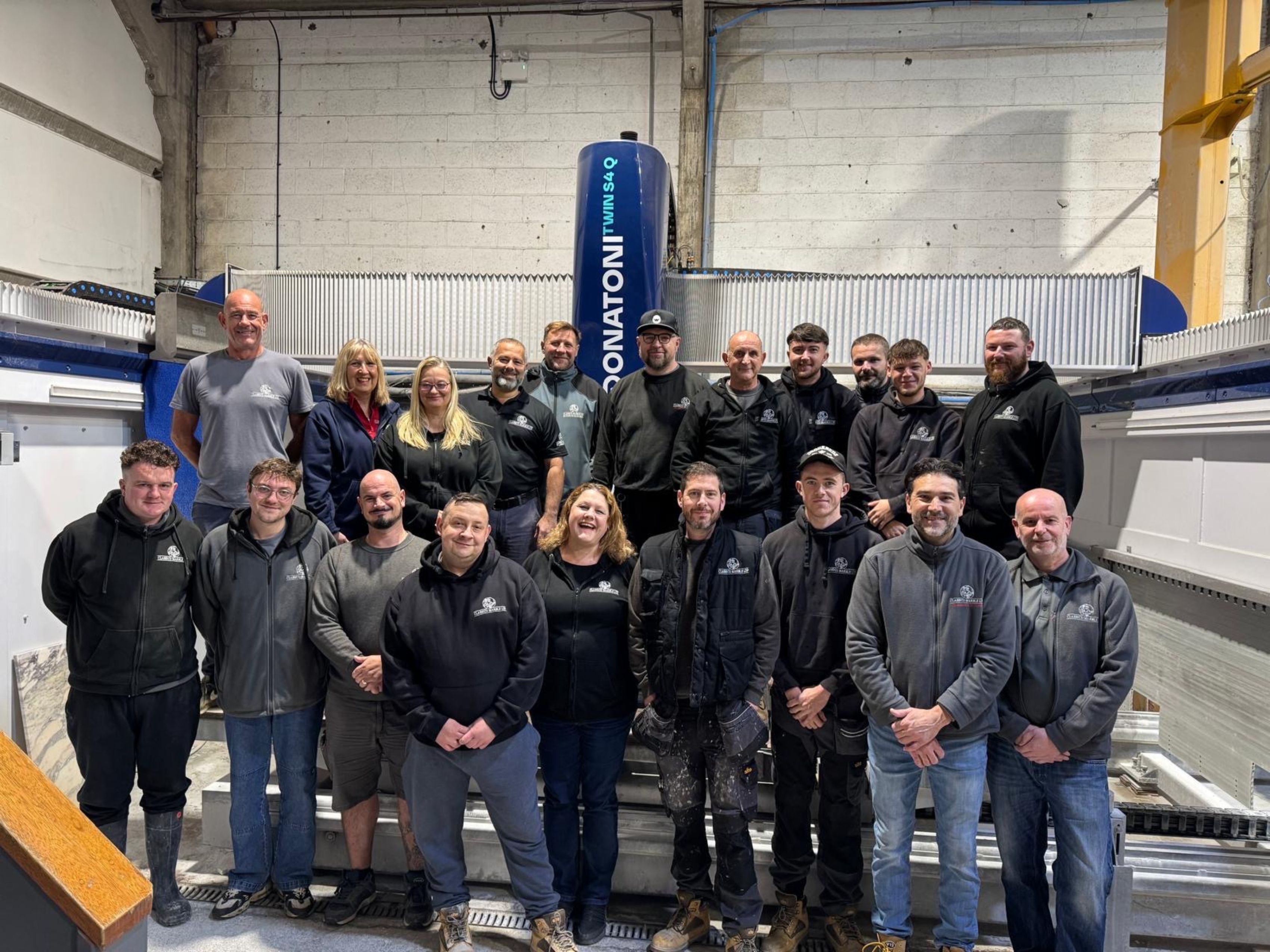Classico Marble Turns 30!
This month marks the 30th anniversary of Classico Marble, a brand founded by the late Calogero Caruso, which emerged as a go-to specialist in bespoke stone surfaces for architects, developers and designers across the South East of England.
Classico Marble brings a “slab-to-surface” approach to stone projects, from material selection and templating through CNC fabrication, bespoke finishing and on-site installation. The brand continues to flourish under the leadership of Calogero’s son, Salvatore, which has led to the addition of Italian Luxury Surfaces in 2015, followed by Stone Automation in 2022. It’s already been quite the journey and the portfolio now also includes Donatoni, Slabsmith, Leica Geosystems, Wodiam, and Tesimag. As a result, the company has rapidly established itself as a specialist partner for stone processors seeking increased efficiency and cutting-edge technology.
I caught up with Salvatore to find out more about the company’s multi-layered journey and to discover what we can expect from them in the future.
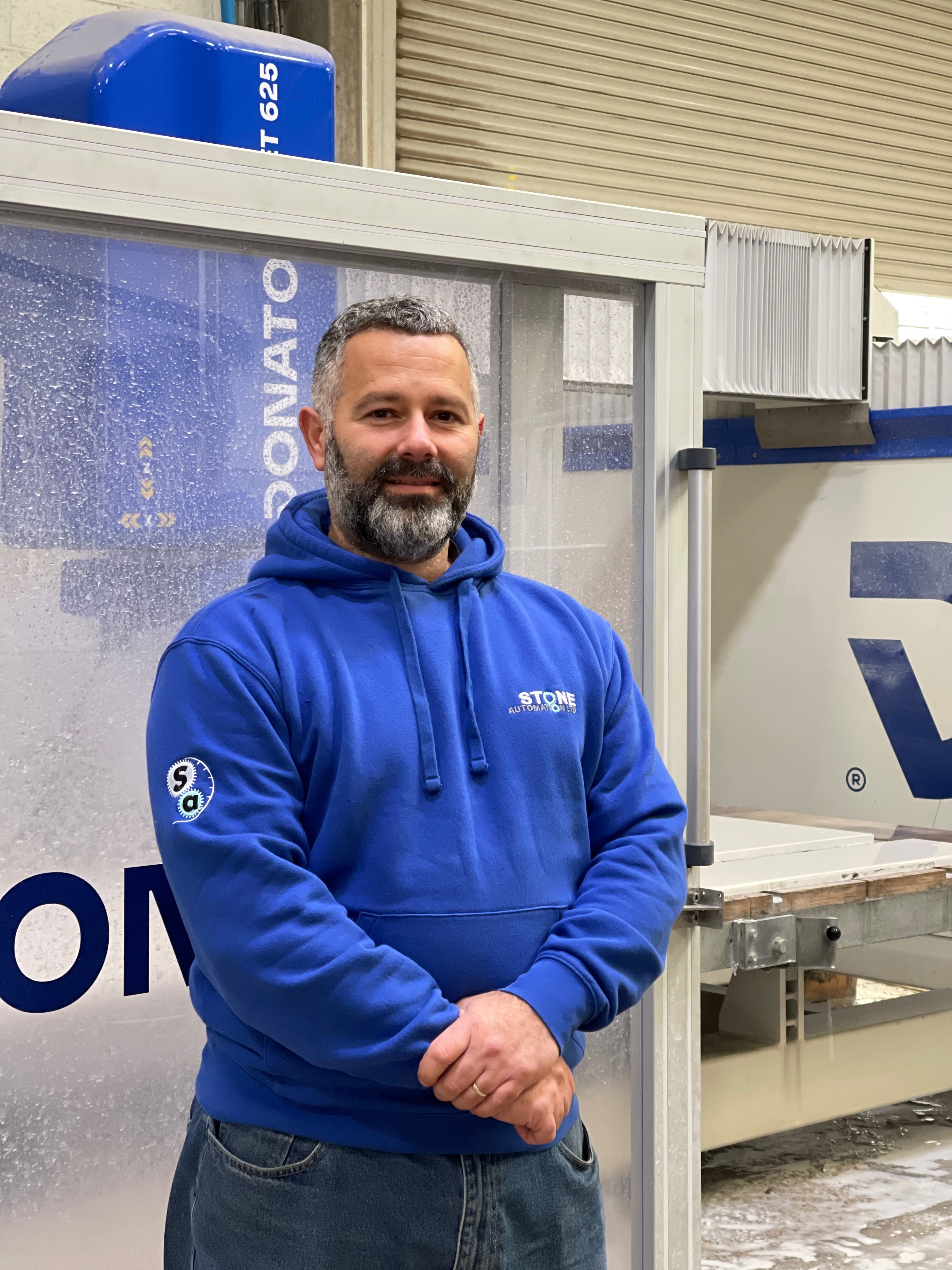
JB: We’re celebrating a huge milestone for Classico Marble and all that you have achieved so far. This has seen the company expand and evolve at quite a rate. Can you tell me about the journey thus far?
SC: Well, I wouldn’t say that it was an evolution, more a natural opportunity. Italian Luxury Surfaces and Stone Automation both came about because we were already long-term customers and because we already held certain distributorships. We were the right people, in the right place at the right time, really, but Classico has been built on an unswerving focus on crafting high-quality stonemasonry.
It was my late father Calogero Caruso, who instilled this focus at the heart of the business when he founded it 30 years ago with just one bridge saw and a small team of stonemasons. He understood what specifiers needed, and Classico swiftly became the go-to stonemason for architects, developers and designers in London and the South East. In 2000, he bought Classico’s first CNC machine, and a bridge saw followed in 2002 when we moved to our current premises. My father had introduced AutoCAD to the business by that point and Classico was becoming well-known for the precision and book-matched work that the team could produce due to the digital technology we had started to embrace. Sadly, my father passed away in 2009, but even today the business remains centred around his continual drive to create the highest quality stonework.
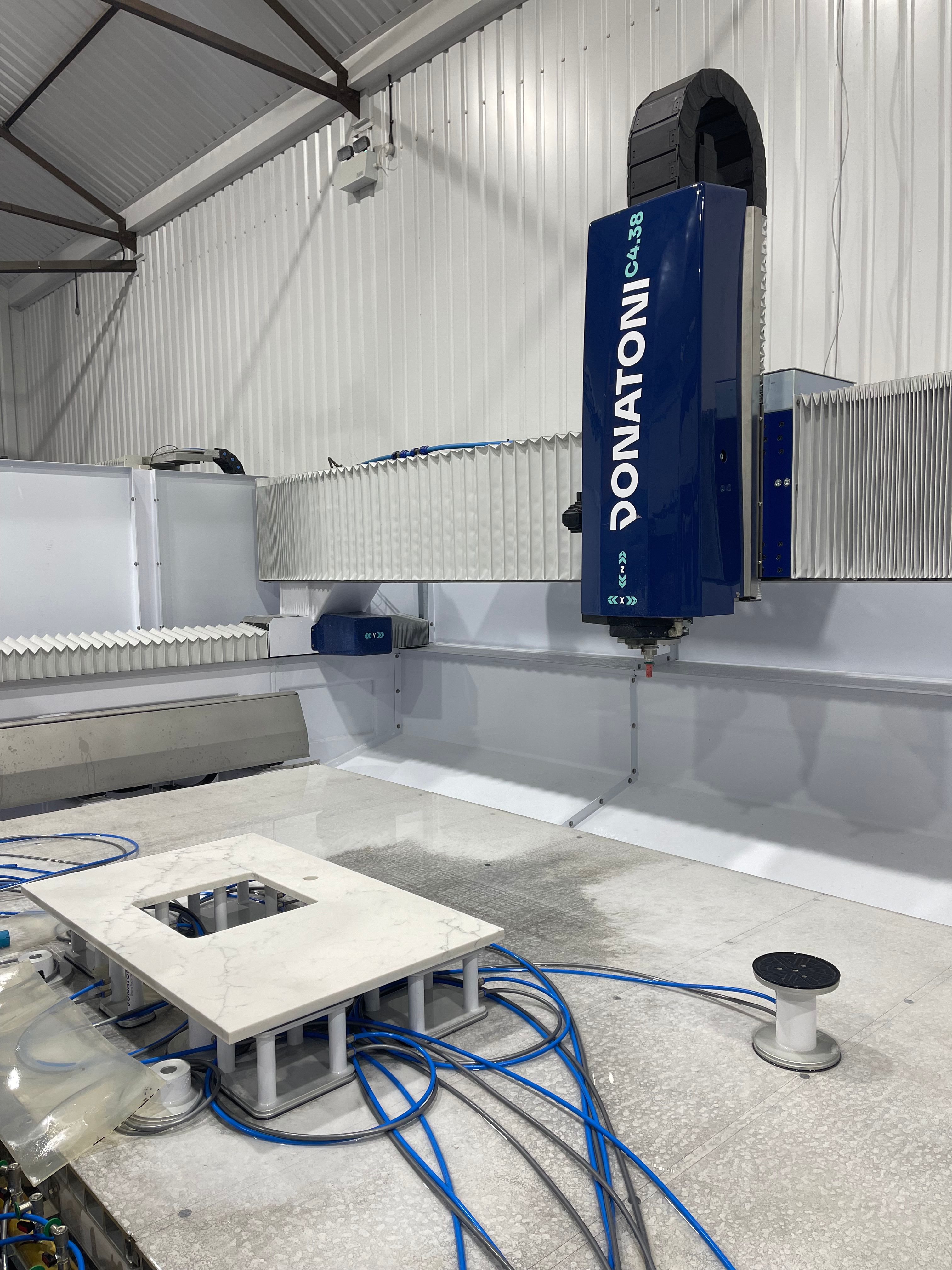
JB: That must have been a difficult time, but the company has gone from strength to strength, even as the UK stone industry has come into difficulty. Can you tell me about some of the key steps along the way?
SC: When I took over the business, I knew that I had to improve the transfer of skills between the different generations of stonemasons and bring in new trainees, so we started an apprenticeship scheme with a local college in 2012, and at one point 20% of our workforce were apprentices. In 2015, we doubled the size of our workshops by taking on the warehouse next door, and a year later, we moved to completely digital production. That wholesale adoption of digital technology meant that we could fabricate every project right, the first time, and maintain the high quality of stonework that we are known for. By 2017, we had two CNC machines and three Donatoni Jet625 bridge saws, and in 2024, we installed the first Donatoni Twin S4Q twin table production line in the UK. Today, we are a team of 35 made up of operators, fitters, sales and office-based team members, working on stone surfaces for projects across England and Wales.
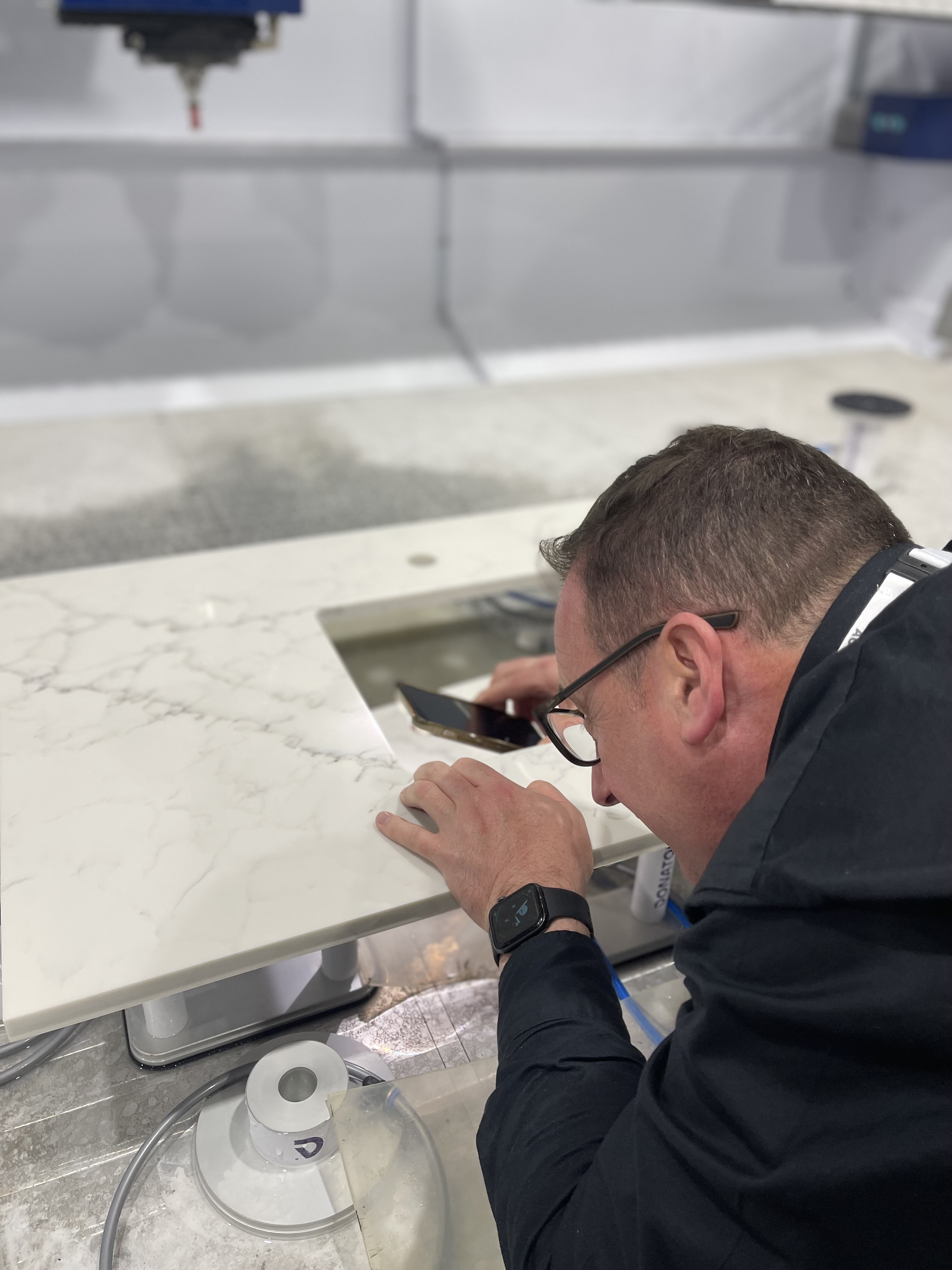
JB: Donatoni Jet625 CNC saws are indeed at the heart of this rich and ever-expanding company narrative, and I’m keen to hear more about what drew you to the machines and how they have helped shape the work you have done since your first purchase.
SC: Classico has bought four Donatoni Jet625s in total over the years. The first was purchased in 2015, and at one point, we had three in our workshops. We were drawn to the Jet625 due to how fast, powerful and compact it is. The size works well for the UK market, where space is at a premium, and the monobloc frame means that it can be easily delivered to almost all locations. Donatoni have even delivered a Jet on a boat down the Grand Canal to one of the last stonemasonry businesses in the heart of Venice.
One big upside to the Donatoni Jet625 is its ability to do 99% of the different processes we need to do when fabricating worktops, which is most of our work at Classico. The entire process is fully automated, and with Donatoni’s Tool+ spindle on them - we have this on ours - a CNC milling tool is always mounted on the machine ready for any cut-outs and avoiding any downtime for tool changing. All in all, it’s a machine capable of seriously increasing the efficiency and productivity of a fabrication workshop.
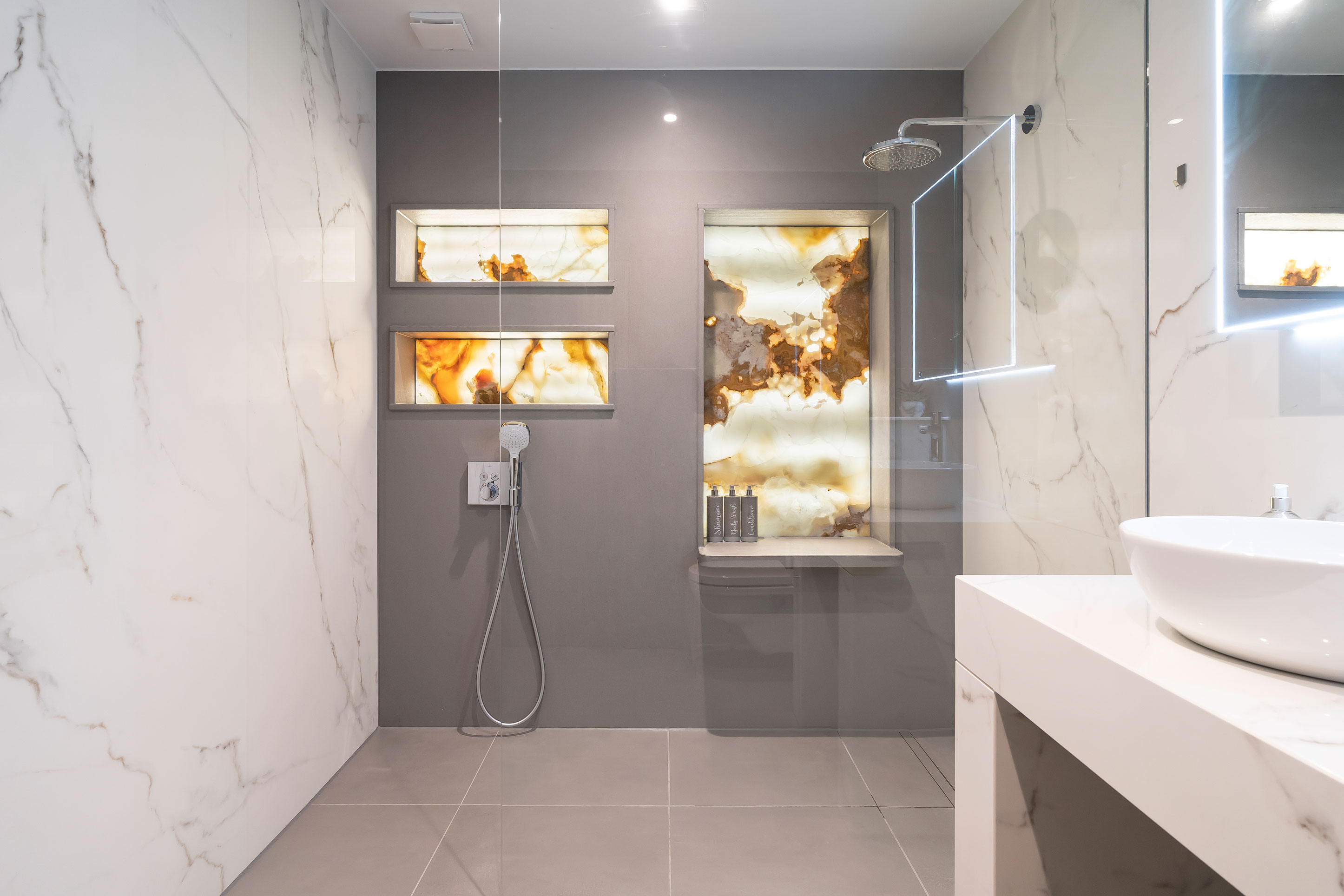
JB: As Classico Marble has developed over the last 30 years, have the type of clients and projects changed?
SC: I would say that our work is pretty much the same type as 30 years ago - predominantly worktops in natural stone and quartz for kitchens and bathrooms - we just handle a greater quantity. We’ve always done quite a lot of marble stairs and there is a definite increase in stone cladding for showers and bathrooms. Demand for porcelain worktops has recently gone through the roof.
In terms of clients, we still work with architects, interior design firms, kitchen and bathroom design studios, and private clients. The number of property developers and housebuilders we work with continues to grow because we can service developments with ease at our factory. For example, we made 1,300 kitchen worktops for Berkeley Homes’ housing development in the former Horlicks factory in Slough.
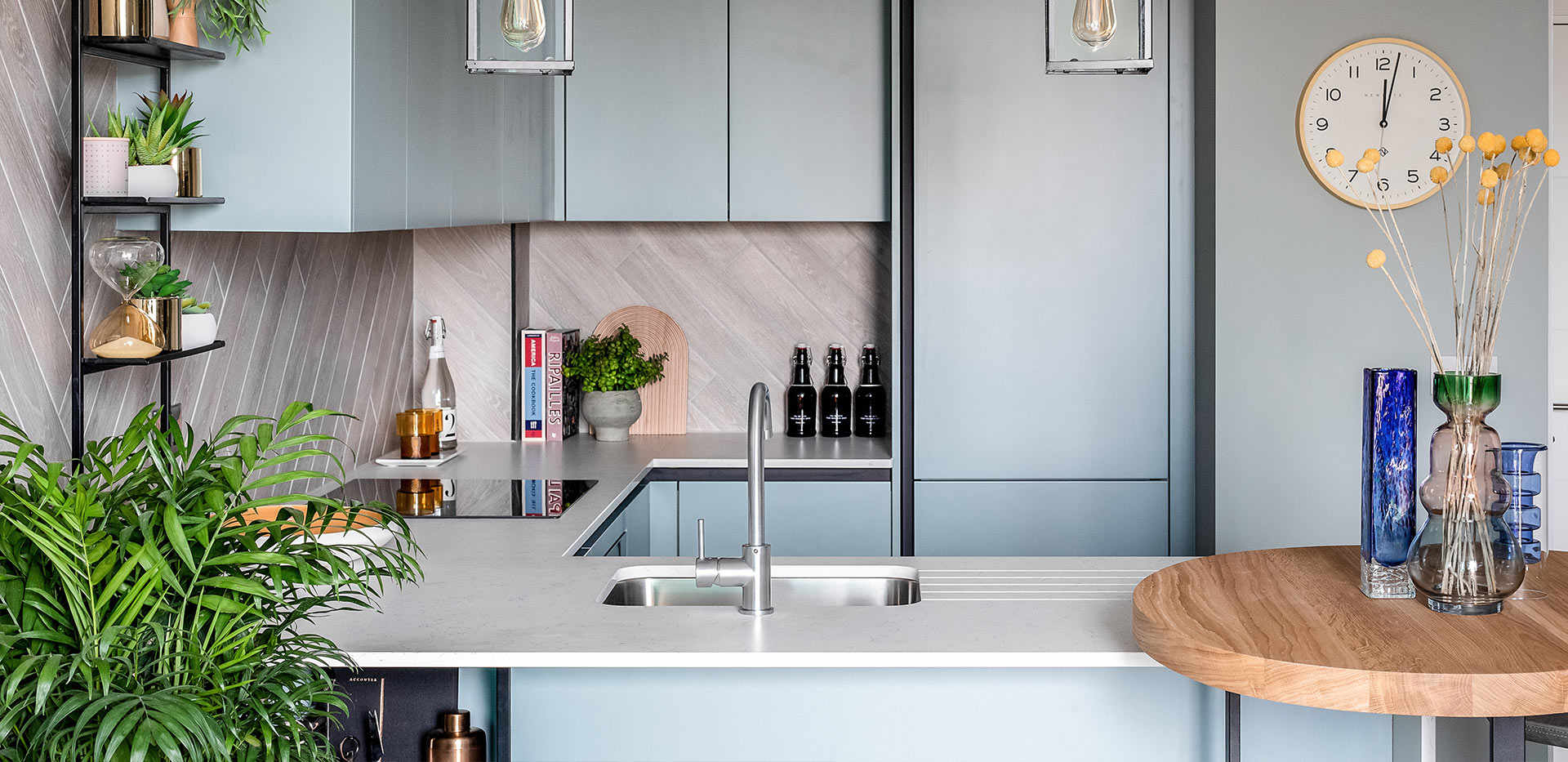
JB: That’s a lot of worktops! What’s the secret to working at such volume?
SC: Our increased capacity and efficiency is down to the many progressions in stone technology during that period and the investments we have made to keep up-to-date. We’ve always been known for our precision and thoroughness on projects, so that hasn’t changed, but we are now able to achieve that precision faster. Bookmatching is easier than when we had to do it all by eye, templating is quick nowadays and only takes one person, the machines are more precise and operators no longer need to inspect and adjust machines.
The Classico Marble facility has now become more than a fully operational factory; it’s a premier Donatoni UK training centre where fabricators can come and see the machines and tools in action, get training and ask questions. We are supporting the next generation of stone fabrication professionals and demonstrating our commitment to innovation and excellence.
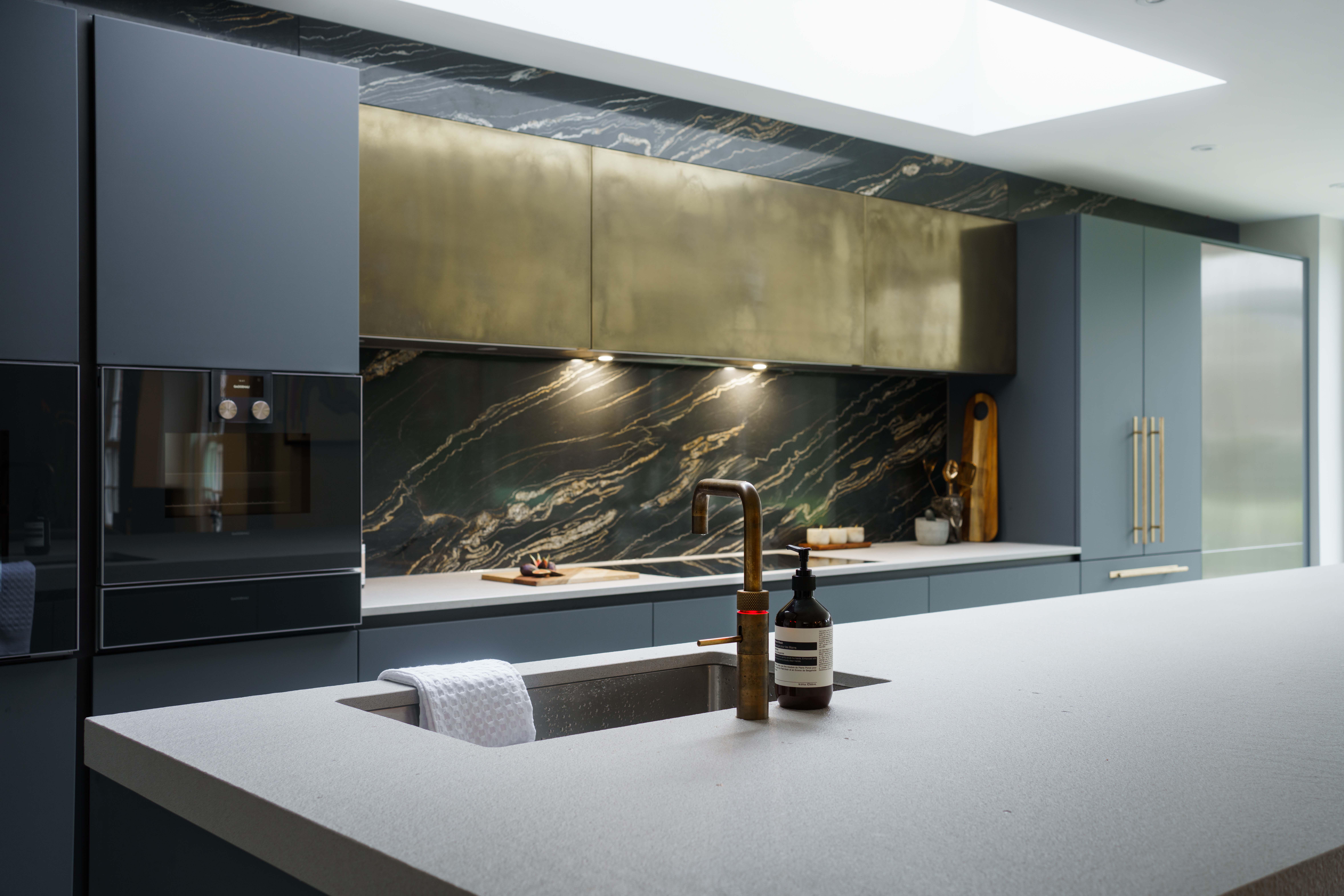
JB: Are you able to give a sense of the type of clients you are working with at Stone Automation? Has this changed as you’ve added to your offering?
SC: We work with a wide variety of stone processing businesses across the UK, from local worktop fabrication businesses through to large-scale stone suppliers with mines. When it comes to Donatoni, we have a strong customer base of CNC saws across the UK and Ireland, and we are now seeing the new generation of CNC work centres, waterjets, and edge polishers starting to be installed.
As we have added brands to our portfolio our exposure to the wider stone processing market has increased, and the number of businesses we work with has increased in line with that. That said, in the face of the rising costs of production, efficiency is incredibly important for all our customers, no matter what their scale. All our customers are making operational changes, increasing automation and focusing on boosting efficiency. With our portfolio of brands and our own operational experience, we are perfectly positioned to support them when implementing all of these.
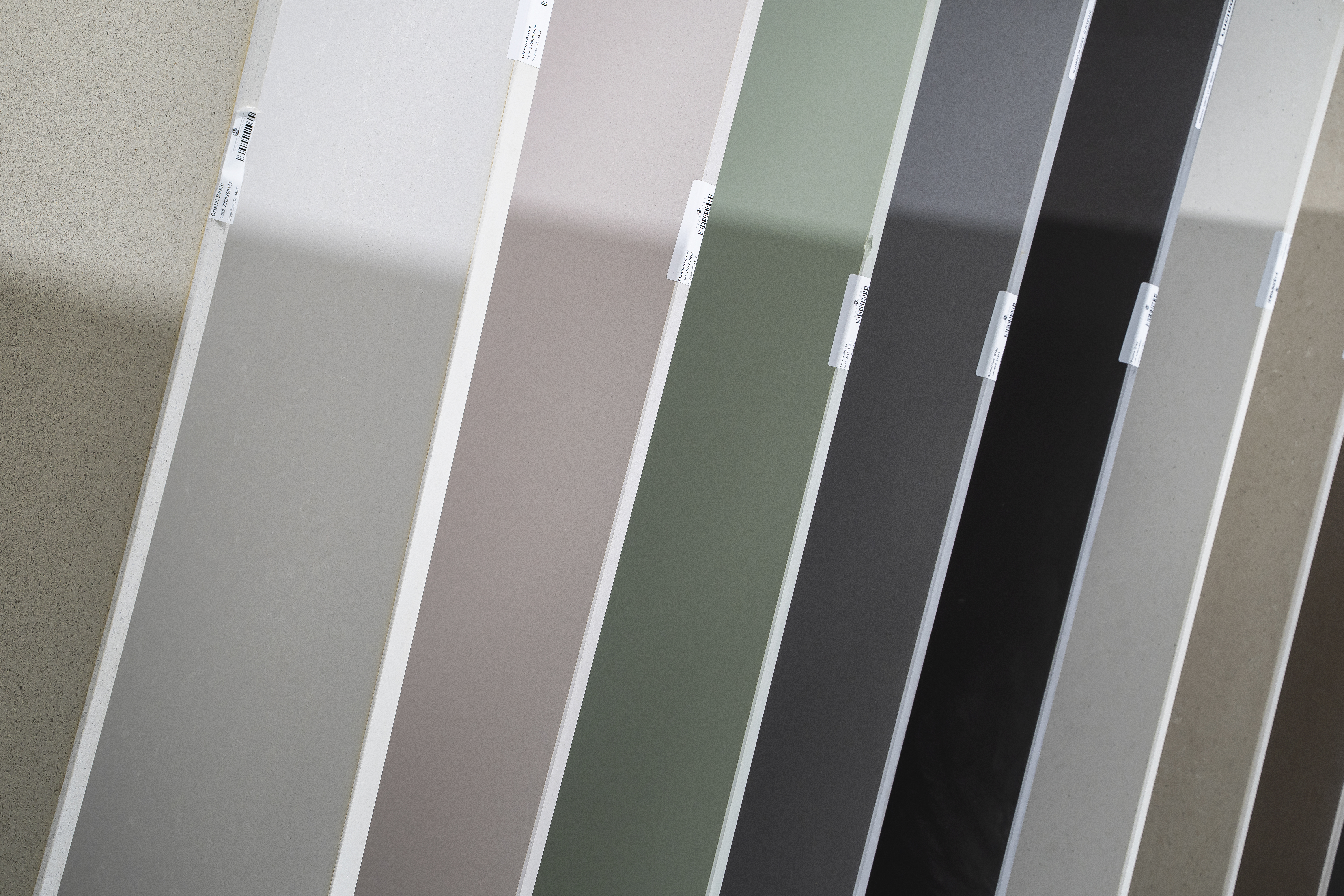
JB: As it’s a milestone year, will the company be doing anything to mark the anniversary?
SC: In early summer, we made the most of the good weather and the whole Classico team and their families came together to celebrate the 30th anniversary with a big party. Since then, we’ve also launched our own quartz range called Pietra and launched our new brand colours this month for the anniversary.
As for Stone Automation, we launched Stone Automation Ireland in March, celebrated our third anniversary in July, joined the WFF in August, and exhibited at three shows so far this year. We are very proud to represent the five leading brands in our portfolio, and our focus remains to help stone processing businesses achieve great results and improved efficiency.

